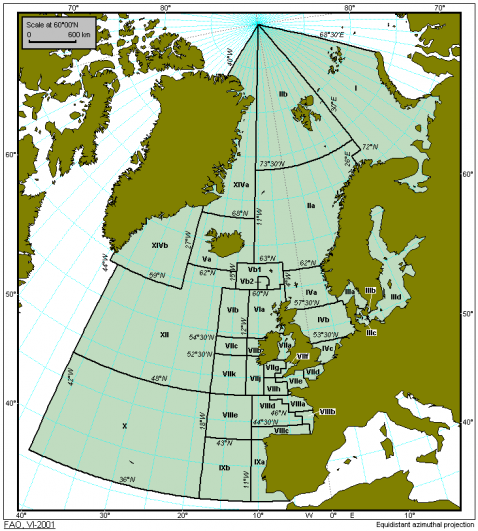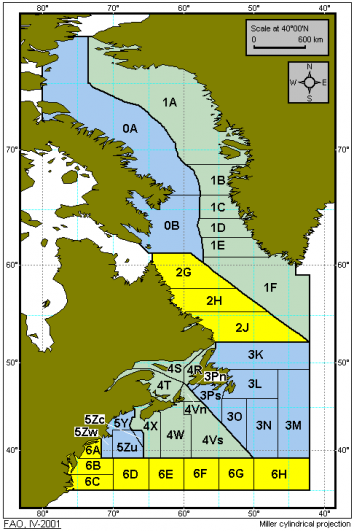Coordination
Regional Coordination Groups
According the current EU legislation on the DCF, Member States shall coordinate their data collection activities with other Member States in the same marine region and shall make every effort to coordinate their actions with third countries having sovereignty or jurisdiction over waters in the same marine region.
In order to facilitate regional coordination, regional coordination groups shall be established by the relevant Member States for each marine region. Regional Coordination Groups were formally set in 2017 and replaced former structure called Regional Coordination Meetings.
Regional Coordination Groups shall aim at developing and implementing procedures, methods, quality assurance and quality control for collecting and processing data with a view to enabling the reliability of scientific advice to be further improved. For that purpose, Regional Coordination Groups shall aim to develop and implement regional databases. Regional Coordination Groups shall consist of experts appointed by Member States, including national correspondents, and the Commission.
Five RCGs are operational in the framework of the DCF, covering four EU marine regions and long distance fisheries:
- RCG Baltic – the Baltic Sea (ICES areas III b-d)

- RCG NS & EA – the North Sea (ICES areas IIIa, IV and VIId), the Eastern Arctic (ICES areas I and II), the ICES divisions Va, XII & XIV and the NAFO areas

- RCG NA – the North Atlantic (ICES areas V-X, excluding Va and VIId) (dwie mapy: Płn. Atlantyk I NAFO z obszarami)
- RCG Med & BS – the Mediterranean Sea and the Black Sea

- RCG LDF – Long Distance Fisheries, regions where fisheries are operated by Community vessels and managed by Regional Fisheries Management Organisation’s (RFMO) to which the Community is contracting party or observer
Poland participates in three RCGs – the RCG Baltic, the RCG NS&EA and the RCG LDF
Regional co-ordination greatly increases the efficiency, effectiveness and integration of the various DCF National Programmes (NPs). Regional Coordination Groups (RCGs) involve European Commission, National Correspondents as well as biologists and economists from each MS involved in the DCF programme. The key objectives of the RCGs are to identify areas for standardization, collaboration and co-operation between MS.
RCGs SECRETARIAT
Multilateral Agreements
- Bilateral_agreement DEU-POL eel sampling (PDF)
- Bilateral Agreement Ichthyoplankton survey DTU Aqua and NMFRI for 2025-2027 (PDF)
- Bilateral Agreement POL-SWE 2025-2027 (PDF)
- Bilateral Agr Ichthyoplankton survey DNK-POL Nov 2021 (PDF)
- Agreement with Finland (PDF 1, PDF 2, PDF 3)
- Agreement with Sweden (PDF 1, PDF 2, PDF 3)
- Agreement with Germany (PDF)
- Agreement with Denmark (PDF)
- Multilateral Agreement or sampling in CECAF waters (PDF 1, PDF 2, PDF 3, PDF 4, PDF 5, PDF 6, PDF 7)
- Multilateral Agreement or sampling in SPRFMO waters (PDF 1, PDF 2, PDF 3, PDF 4, PDF 5)
- Multilateral Agreement or sampling in NPFC waters (PDF 1)
Other Meetings
Another very important platform for the regional and pan-European coordination and unification of the fisheries data collection are the various meetings of working groups and workshops organized by the ICES and the STECF (Commission):
Reports
STECF reports
ICES
Regional Co-ordination, PGECON, Liaison Meeting




